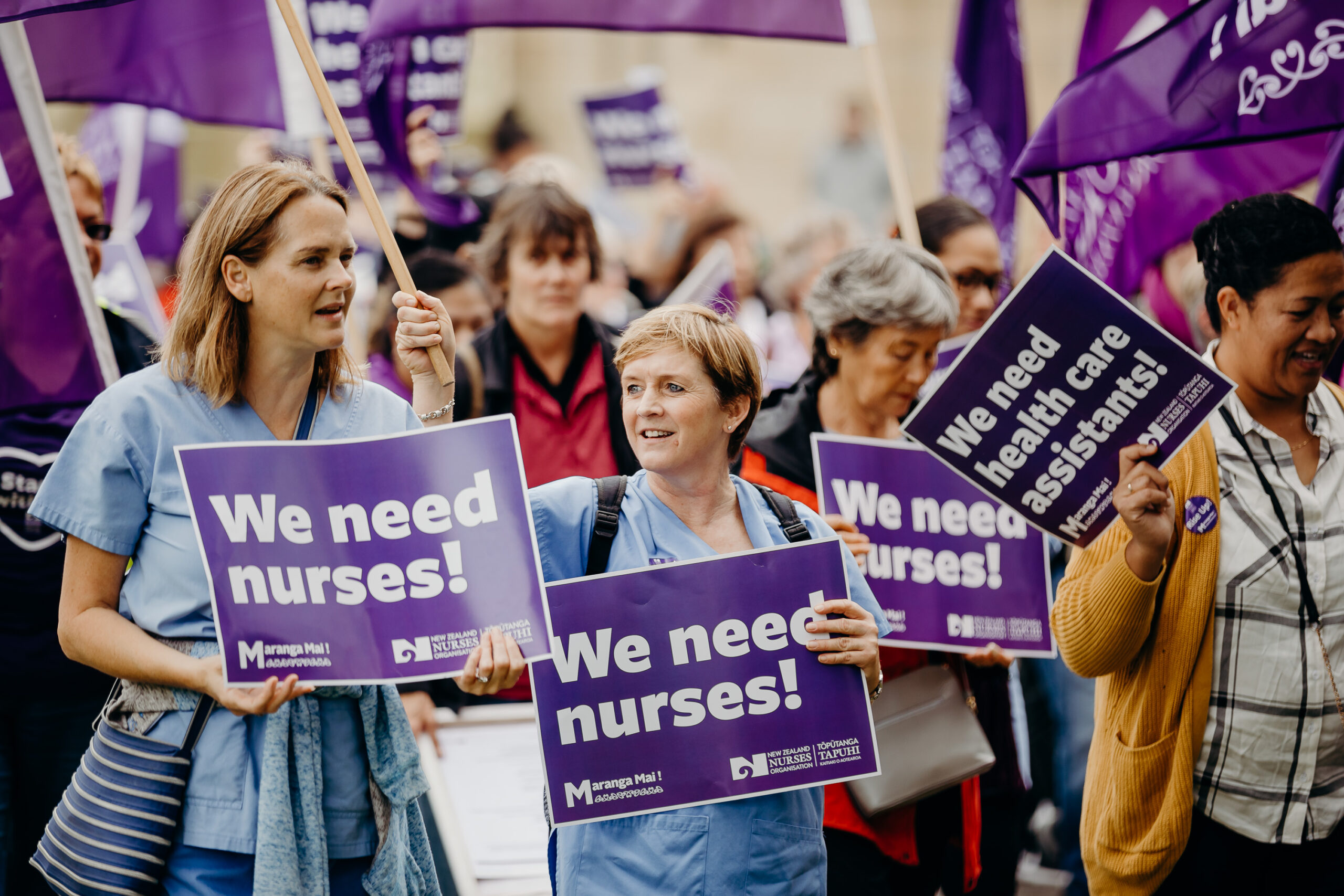On Wednesday 5 May, the government announced a pay freeze for public sector workers. Pay, already frozen in 2020 to June this year, will continue to be frozen for another three years. Staff earning over $100,000 will not receive a pay rise at all over this period. For workers earning between $60,000 and $100,000 the default will also be no increases, but there is some leeway if criteria for “restricted circumstances” are met. Workers earning under $60,000 are not directly affected by the freeze.
We can, and should, make this announcement a dead letter. Collective agreements are not dictated but, in law, negotiated. Organised workers in the public service have a tool in concerted strike action to advance their pay and conditions. A pay freeze for public sector workers would be bad for all workers, instituting a target for all employers. It is in the interests of the whole working class to see this attack resisted.
The government justifies the measure as necessary “fiscal responsibility” after taking on debt to fund COVID-19-related measures like the wage subsidy. But the pay freeze is a kick in the teeth for the very people who have kept everyone safe throughout the pandemic. Amongst the public servants whose pay is being frozen are the nurses, doctors, border and MIQ staff. As the economy recovers and business returns to profitability the government is asking workers not only to carry us through, but to pay the cost.
Both Labour and National are trying to divide workers in order that business profits can continue their upward climb. Labour has tried to say it is focusing on the incomes of the lowest paid, while National has accused the government of employing too many “Wellington bureaucrats.”
Neither fairly represents reality. Public sector workers do highly skilled and sometimes dangerous jobs. As well as the nurses, doctors and teachers, public sector workers are meat inspectors, lab technicians, care workers, park rangers and forestry officers. Even those of us that work full-time in offices are far from bureaucrats – it was us who played a part designing the wage subsidy scheme, processing payments and setting up the workings of MIQ.
Nor is it generally the case that there is a yawning gulf between low-paid and higher-paid workers. While there are poorly paid workers in the sector whose pay must be lifted, many workers in occupations subject to the pay freeze – nurses, teachers, border and ministerial workers – start out on salaries just beneath the $60,000 threshold but are able to progress beyond it as they gain experience. The pay freeze will effectively put a roof on progression within the sector.
Early signs, however, are that public service workers will not take the pay freeze lying down. Public servants are subject to the same pressures of rising rent, house prices and cost of living that all workers are. Many who worked in essential services throughout the lockdowns feel betrayed. “In our hospitals, in testing labs and on our boarders, PSA members did the hard work required to push Covid-19 out of this country” said the Public Service Association’s Kerry Davies in last Wednesday’s press statement.
PSA National Secretary Erin Polaczuk said it is “neither sensible nor acceptable to punish today’s public servants along the way. We expect better from this government. We do not expect our members will quietly accept pay restrictions in perpetuity.”
It was a nill general wage order in 1968 that sparked workers’ struggles in New Zealand after decades of quiet through the 1950s and 1960s. Could this new attack do something similar? It is too soon to tell, but there are reasons for us to be confident in a push back. There is a generation in work now who do not remember the defeats of the 1990s; public concern is high around housing affordability and inequality; and, crucially, people remember the lockdown and the role the public service played saving lives. That’s a good start for a fightback.
Cory Anderson has worked in the public sector in Dunedin, Auckland and Wellington since 2009, and is a member of the Public Service Association.









